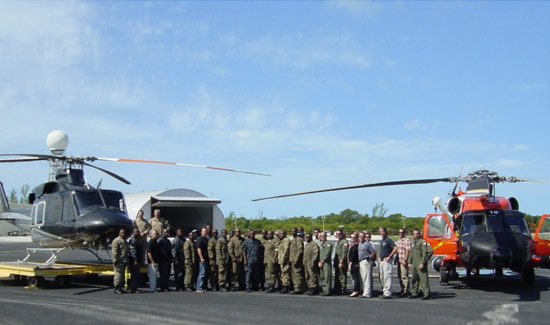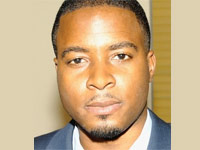Only forty-four per cent of the murders committed in The Bahamas as of June 8 are as a result of narcotics and criminal enterprise, Minister of National Security the Hon. O.A.T. “Tommy” Turnquest told Parliament Wednesday.
That amounts to 25 of the 57 murders committed in The Bahamas to-date.
“What it doesn’t include are those 16 undetermined cases, many of which, the Police believe are drug-related but they can’t specify for any number of reasons,” Mr. Turnquest added.
Mr. Turnquest told Parliament that there is a “whole nexus” (or link) between drugs and crime which he said is a very real problem.
“There is no question that there is a strong link between the drug trade and serious crime in our country. What we are seeing today is the result of the drug trade that sadly gripped our country a generation ago.
Mr. Turnquest said that to help battle the problem and reduce the number of murders and other violent crime in the country, law enforcement, national security and officials from other government and non-governmental agencies have formed a partnership that will tackle the correlation head on.
He said the correlation between drugs, arms and human trafficking and crime, criminality and violence was further highlighted by a United Nations Office on Drugs and Crime (UNODC) Report that “drew a line” between the illegal drug trade and other crimes including crimes such as illegal gun smuggling, illegal immigration and crimes “of a very violent nature such as murder.”
“This is borne out by the statistics on the amount of marijuana, cocaine and illegal firearms seizures that have taken place in our country over the past five years,” he said.
Mr. Turnquest said law enforcement and national security officials have been placed in a position to effectively battle the connection between illegal drugs, crime, criminality and violence – particularly violent crimes such as murder – based on information obtained through the Royal Bahamas Police Force’s demographic analysis and information obtained through research gathered by the National Anti-Drug Secretariat (NADS).
He said the inter-agency, multi-dimensional approach reduces the scope for duplication of efforts of various national bodies, as it brings together ministries and departments of government, non-governmental organisations and civil society “so that their combined expertise and experiences can be pooled in crafting responses to our drug problem.”
To further strengthen “this approach,” national security and law enforcement officials will move to merge NADS and the National Drug Council, the latter which is now under the portfolio of the Ministry of Health, “so that the drug challenges can be more effectively and efficiently addressed.”
“This approach will allow us to facilitate The Bahamas’ collaboration and cooperation with international partners in sourcing assistance for, and reporting on our national drug control efforts,” Mr. Turnquest added.
Mr. Turnquest said officials will also launch a National Anti-Drugs and Crime Awareness-Raising Campaign which is designed to establish “an effective public/private sector partnership” for the implementation of a nation-wide comprehensive and sustained campaign that will be focused on “reducing the use and abuse of drugs while simultaneously reducing the levels of crime, criminality and violence.”
This will be done through the creation of positive opportunities for at-risk individuals and groups within those inner-city communities where crime, criminality and violence are more pervasive.
“This new initiative is designed to inspire and strengthen every strata of the Bahamian community to think and act positively. Its focus is on uplifting all gender and age-groups, particularly within the inner-city communities,” he added.
A committee, comprising of senior officials from government agencies such as the Ministry of National Security, Royal Bahamas Police and Defence Forces, Her Majesty’s Prisons, National Drug Council, Ministries of Health, the Environment, Labour and Social Services, Education, Youth, Sports and Culture and others, in addition to private sector companies and civic and church organisations, has been working “diligently” towards this end.
There are seven specific objectives pertaining to the campaign and they include reducing the demand for drugs and drug-related crime and criminality throughout The Bahamas; supporting and widely promoting properly planned anti-drug and crime prevention activities being undertaken within all sectors of Bahamian society, and providing platforms where the youth and women of The Bahamas, in particular, can voice their opinions and offer solutions to the problems associated with drugs and crime.
Officials will also implement a support network for those “directly impacted as a result of drugs and crime.”
Mr. Turnquest said the Government of The Bahamas, will continue to provide its security and law enforcement agencies with the manpower, equipment and expertise needed to wage the war against the illicit drug, gun and human smuggling trade on all fronts.
He said as an example, to address the “immediate needs” of the Royal Bahamas Police Force, $8 million was “expensed” from the Confiscated Assets Fund during Fiscal Year 2010-2011.
Those resources were utilised to procure two compact mobile command centres, 103 cars, buses and trucks, communication equipment, surveillance equipment, specialty vehicles for surveillance operations, technical equipment for night-time surveillance and other operations and equipment to be used by Crime Scene Investigators.
I want to assure this House that CAF resources are allocated only after a strict assessment of the stated objectives for which the funds will be used and an analysis of the impact of that expenditure will have on the work of the requesting agency and on national security generally,” Mr. Turnquest added.
By Matt Maura
Bahamas Information Services


